Martin Luther King, Jr.’s legacy to Africa
BY LOU SIFA
January 20 is Martin Luther King, Jr. Day, a national holiday in the United States to celebrate the memory of the iconic civil rights leader who was assassinated at the young age of 39 on April 4, 1968 in Memphis, Tennessee, in the middle of his heroic fight for human rights, a fight rooted in the philosophy of non-violence. The palpable fruit of the work done by the young minister–who rose from obscurity to the forefront of history–and his followers didn’t just benefit blacks in America.
In commemoration of this milestone in modern history, we put the following question to Africans from all walks of life: “As an African, do you think Martin Luther King, Jr.’s 1963 ‘I have a Dream’ speech was of any significance to Africans?” This is a sampling of the answers we received.
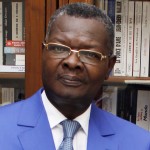
I do think Martin Luther King Jr.’s “I have a dream” speech was significant for us Africans worldwide.
This speech has not only provided many with the awareness of a better world, one based on justice and freedom, but it has also inspired African intellectuals in the aftermath of the independence of their nations to commit to building sovereign states as well as a society of peace and justice while fighting neocolonialism.
Africa is affected by the curse of Sisyphus, but we hope that in the next decades, our continent can sit at decision makers’ table and participate in the construction of a universal society of peace and justice.
H.E. Agbeyome M. Kodjo, former Prime Minister of Togo, president of OBUTS, a political party.
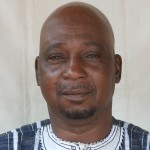

Slavery and the deportation of blacks to the Americas was a wound for Africa and remains so to this day. The Africans who remained in Africa followed with disgust, bitterness and powerlessness the suffering thus endured by their brothers who were taken from them. It goes without saying that the deepest wish of the African who remained in Africa has always been to see the blacks of America finally find a haven, a setting in which they would live in harmony in new their environment with their fellow citizens regardless of their color.
Therefore, in the “I have a dream” speech, Martin Luther King, Jr. expressed a deep wish that all African wanted to see realized. The meaning of the “I have a dream” speech for Africa is that for their brothers torn from their affection, there is a light on the horizon. That blacks and whites could one day unite to develop the world; that America and Africa could come together one day to be the hope of all humanity.
The day Barack Obama was sworn in as President of the United States of America, millions of Africans (including me) cried that this is the beginning (and I mean THE BEGINNING), of the fulfillment of the prophecy of Martin Luther King, Jr.
Justin G. Traore Director-General International Trading Center, Ouagadougou, Burkina Faso—itc612002@yahoo.fr
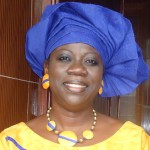

The speech “I have a dream” was of a great significance to Africans. It was delivered in the sixties when most African countries thrived for freedom and became independent. Many Africans were inspired by Martin Luther King’s vision about a better life for black people and expected that independence would bring hope and relief.
Now is time for real democracy in Africa. The Dream must come true. Justice, Equality, Freedom for all Africans to voice their opinions and pursue happiness.
Taibatou Osseni, program manager, Benin
You may also want to read: What we, African immigrants in the U.S., owe Dr. King
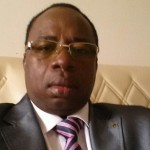

Martin Luther King, Jr. was not just a powerful religious leader, he was actually a messiah who deeply believed that the world would not be stable without peace, a sine qua non condition for love among people. No doubt, his belief in a world in which people communicate among themselves in order to better know each other has shaped, not just the United States, but the whole world, starting with Africa, the cradle of humanity. After the upheavals that have shaken our continent, a blanket of peace and shared love is now spreading over our heads. May Dr. King’s prophecy continue to guide us and continue to remind our leaders of the mighty power of love among people, regardless of their physical differences.
Saidou Compaore, businessman, Ouagadougou, Burkina Faso s_compaore@hotmail.com
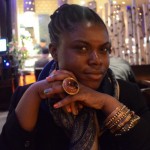

MLK Jr.’s “I Have A Dream” Speech is relevant for all black people across the Diaspora. The African continent continues to experience remnants of colonialism, imperialism, and slavery—deprivation, destruction, and a deterioration of the cultures and practices that are unique to the Black identity. In many places around the world, the community is fractured, and we continue to drink out of that “cup of hatred and bitterness,” unable to come together and push forth as a strong, elevated people. In 1963, Dr. King asserted that “the colored American lives on a lonely island of poverty in the midst of a vast ocean of material prosperity . . . and finds himself in exile in his own land ,,,” Fifty years later, this is still true, not only for black Americans, but also for Africans on the continent, who are surrounded by resources and wealth enough to shoulder the needs of all mankind. Yet, because of greed, a lack of leadership, and an obsession with western ideals, we sit back as other people invest in our homeland and take our resources.
The black experience seems to be universal in that no matter where you are in the world, blacks are disproportionately affected by educational and health disparities, and overall, lack access and social capital. Although we create cultural and class divides amongst ourselves, the rest of the world, for the most part, relates to all of us as the same despite our ethnic identities. To some degree, I believe that Dr. King’s speech was a call to action for us to come together and work within systems that weren’t necessarily created to support us, in order to bring justice, equality, and an enhanced sense of pride and dignity to the community as a whole.
Shirley Torho, a N-Y.-based health professional of Ghanaian origin.


